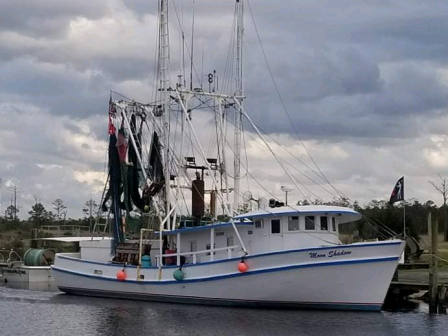
South Carolina Shrimper Finds Smooth Sailing with Help of EDA Revolving Loan Fund Program
James Bradley is a second-generation commercial fisherman from South Carolina. He’s the owner of Bradley’s Commercial Fishing, a family-owned business on St. Helena Island. The company provides shrimp and other seafood items to local restaurants. Fishing has been a proud tradition for the Bradley family, which has been in the seafood business for more than 100 years.
An able seaman who learned how to shrimp and fish from his father, Bradley served as captain of the company’s shrimp trawler, Bradley’s Pride, which would sail the Atlantic off the South Carolina coast. It served as the centerpiece of Bradley’s company and its main source of revenue. After more than five decades in business, however, he realized it was time to buy a new boat.
Bradley contacted the Catawba Regional Council of Governments (CRCOG), an Economic Development District in Rock Hill, and requested financing for a new trawler. CRCOG was ready and willing to assist, having received a $9 million CARES Act recovery assistance grant from the Economic Development Administration (EDA).
“The loan has helped to sustain the business during the downtime,” Bradley recalled. “Now that things are getting back to normal after COVID, the customer base has expanded and the demand is high, providing greater opportunities for more sales.”
Awarded in July 2020, the grant established a Revolving Loan Fund designed to provide loans of $35,000-$750,000 to coronavirus-impacted businesses throughout the state.
The $90,000 loan was finalized in March 2022. It enabled Bradley to acquire a larger shrimp trawler dubbed Moon Shadow. With an increased catch and hold area, it has allowed the business to increase production.
“It’s great having a larger boat that’s in good condition and ready to supply the customers with seafood and meet their needs,” Bradley said.
This loan, and others financed through EDA’s award, have provided small businesses in South Carolina, including those in traditionally underserved communities, with critical gap financing necessary to maintain day-to-day business operations. They have bolstered South Carolina’s small business community, the backbone of the state’s economy, as it works to rebuild from the economic devastation wrought by the coronavirus pandemic.
